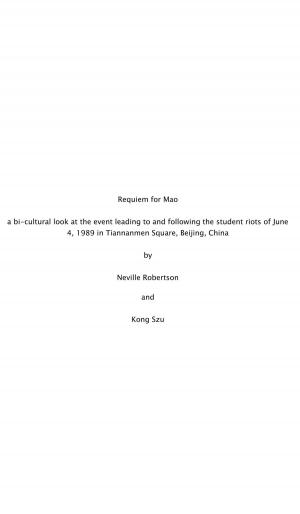| Author: | Bill Nicol | ISBN: | 9781483503059 |
| Publisher: | BookBaby | Publication: | July 17, 2013 |
| Imprint: | Language: | English |
| Author: | Bill Nicol |
| ISBN: | 9781483503059 |
| Publisher: | BookBaby |
| Publication: | July 17, 2013 |
| Imprint: | |
| Language: | English |
Few natural disasters come bigger than the 2004 Indian Ocean Tsunami. It left a trail of destruction from one side of the Indian Ocean to the other. Hardest hit was Aceh in Indonesia’s west where the tsunami killed almost a quarter of a million people, left half a million homeless and destroyed swathes of infrastructure. The global community responded with the largest military deployment since World War II plus billions in private and public charity. Four years later, Aceh had been rebuilt from the ground up in one of the world’s fastest and most successful disaster reconstruction programs, a stunning achievement given that so many international recovery operations fail. "Tsunami Chronicles: Adventures in Disaster Management" is a powerful series of six books that tell the inside story. Written by a key insider, they offer a great global case study in disaster risk management, preparedness and reconstruction, and a model of leadership in the politics of recovery and management of operational complexity. “Cultures of Care and Contempt” is the fourth in the epic six-book series “Tsunami Chronicles”. Set in Indonesia’s western province, Aceh, it uncovers the strengths and failings of international leadership in emergency response, recovery and reconstruction following the 2004 Indian Ocean Tsunami. Leaders must stand apart from the crowd in thinking for themselves. This is never easy. Rumours, assumptions and narrow narratives often cloud clear, independent thinking. They did so among members of the international community who came from around the world to help Aceh recover from its massive natural disaster. Some brought big money, others big politics. Some came with open minds, others fixed views, rigid ideologies and inflexible interests. This is the story of what happens when leadership turns from care to contempt, surrendering to bureaucratic inertia and ethical failure. It swings through the impressive contributions of leading international NGOs like CARE and Oxfam, internal conflicts that gripped the Red Cross, frictions that beset the UN, ethical challenges that undermined the World Bank, the power politics of the European Commission, misfires by the United States and the weakened position of nations like the UK and Canada when outvoted in multilateral funds to which they give money. The story is a wakeup call to global leaders and international managers involved in disaster risk management and international development, especially as global warming and climate change threaten more and ever greater natural disasters. old short: Leaders must stand apart from the crowd in thinking for themselves. This is never easy. Rumours, assumptions and narrow narratives often cloud clear, independent thinking. “Cultures of Care and Contempt” reveals such failings as it probes the giant global contributions to the recovery of Indonesia’s westernmost province, Aceh, after the 2004 tsunami. People came from around the world to help. Some brought big money, others big politics and some brought both. Some came with open minds willing to learn and adapt, others with fixed views, rigid ideologies and inflexible interests. This is the story of what happens when positive leadership turns from care to contempt, surrendering to bureaucratic inertia and ethical failure.
Few natural disasters come bigger than the 2004 Indian Ocean Tsunami. It left a trail of destruction from one side of the Indian Ocean to the other. Hardest hit was Aceh in Indonesia’s west where the tsunami killed almost a quarter of a million people, left half a million homeless and destroyed swathes of infrastructure. The global community responded with the largest military deployment since World War II plus billions in private and public charity. Four years later, Aceh had been rebuilt from the ground up in one of the world’s fastest and most successful disaster reconstruction programs, a stunning achievement given that so many international recovery operations fail. "Tsunami Chronicles: Adventures in Disaster Management" is a powerful series of six books that tell the inside story. Written by a key insider, they offer a great global case study in disaster risk management, preparedness and reconstruction, and a model of leadership in the politics of recovery and management of operational complexity. “Cultures of Care and Contempt” is the fourth in the epic six-book series “Tsunami Chronicles”. Set in Indonesia’s western province, Aceh, it uncovers the strengths and failings of international leadership in emergency response, recovery and reconstruction following the 2004 Indian Ocean Tsunami. Leaders must stand apart from the crowd in thinking for themselves. This is never easy. Rumours, assumptions and narrow narratives often cloud clear, independent thinking. They did so among members of the international community who came from around the world to help Aceh recover from its massive natural disaster. Some brought big money, others big politics. Some came with open minds, others fixed views, rigid ideologies and inflexible interests. This is the story of what happens when leadership turns from care to contempt, surrendering to bureaucratic inertia and ethical failure. It swings through the impressive contributions of leading international NGOs like CARE and Oxfam, internal conflicts that gripped the Red Cross, frictions that beset the UN, ethical challenges that undermined the World Bank, the power politics of the European Commission, misfires by the United States and the weakened position of nations like the UK and Canada when outvoted in multilateral funds to which they give money. The story is a wakeup call to global leaders and international managers involved in disaster risk management and international development, especially as global warming and climate change threaten more and ever greater natural disasters. old short: Leaders must stand apart from the crowd in thinking for themselves. This is never easy. Rumours, assumptions and narrow narratives often cloud clear, independent thinking. “Cultures of Care and Contempt” reveals such failings as it probes the giant global contributions to the recovery of Indonesia’s westernmost province, Aceh, after the 2004 tsunami. People came from around the world to help. Some brought big money, others big politics and some brought both. Some came with open minds willing to learn and adapt, others with fixed views, rigid ideologies and inflexible interests. This is the story of what happens when positive leadership turns from care to contempt, surrendering to bureaucratic inertia and ethical failure.















